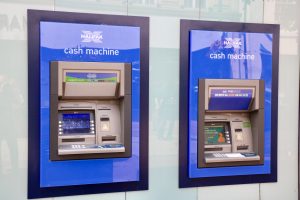 Financial services jobs make a huge contribution to the UK economy. Latest figures show that around 7% of all economic input comes from financial services. In London, the contribution is even larger. The range of jobs available in this sector is enormous. Financial services covers everything from working in a high street bank or insurance call centre to being stockbroker or investment banker. Companies also vary hugely in the checks they run on applicants. Credit checks are fairly standard but what about DBS certificates? Here’s everything you need to know about police checks for jobs in finance.
Financial services jobs make a huge contribution to the UK economy. Latest figures show that around 7% of all economic input comes from financial services. In London, the contribution is even larger. The range of jobs available in this sector is enormous. Financial services covers everything from working in a high street bank or insurance call centre to being stockbroker or investment banker. Companies also vary hugely in the checks they run on applicants. Credit checks are fairly standard but what about DBS certificates? Here’s everything you need to know about police checks for jobs in finance.
The Financial Conduct Authority and DBS Certificates
There are three levels of DBS checks which employers can ask for. A basic disclosure looks at current unspent criminal record only. This sort of certificate is unrestricted – anyone can apply, for any reason. The other two types of disclosure, standard and enhanced, only apply to specific types of job. Enhanced disclosure usually applies to people working closely with vulnerable people. That would cover people like nurses, care workers or teachers. The type of disclosure which usually applies in financial services is the standard disclosure. The industry body which sets the rules around disclosure is the Financial Conduct Authority (FCA).
The FCA decides which roles need standard DBS checks and which don’t. They define these roles as a “controlled function”. Each company is different, but controlled functions are jobs working at a high level as directors or chief executives, or people who have a high level of responsibility in a company. People who are chartered accountants also go through the standard disclosure process when they first register.
Credit Checks and Finance Jobs
Unless you’re working at a very senior level in an organisation, or registering for the first time as a chartered accountant, you probably won’t be asked for a standard disclosure check. Some organisations might choose to run basic disclosure checks on employees. However, there is a cost implication in doing this, and not many companies check everyone working for them. Perhaps the most common type of check for financial services jobs is a credit check. These can apply to any type of job, at all levels in the finance industry.
Credit checking is all about protecting the business from loss or risk. Many people in financial services have access to money. This could be physical notes and coins while working in a bank, or having the ability to electronically transfer funds, pay invoices or credit accounts. Most people working in financial services are honest. But a minority who have serious financial problems might be tempted to divert money into their own accounts to resolve their difficulties.
Adverse Credit Checks
When banks and other financial services organisations check their workers, they have the sole aim of protecting their business. They aren’t interested in how much you pay on your mortgage, or whether you’re a bit behind on your credit card bills. Most will only look for indications of serious problems. This is known as an “adverse credit check”. Applicants have to give written permission for an employer to delve into their credit file. If they do, the employer is looking for issues such as:
- Any bankruptcy, personal or of a business, either current or in the recent past
- A County Court Judgement (CCJ) for an unpaid debt
- An Individual Voluntary Arrangement (IVA) in order to deal with serious debt issues
Applying for standard DBS certificates
If you are applying for a role which requires a standard DBS check, then your employer should help you navigate the process. Applying for a standard DBS check is not tricky. First, fill in the application form online. You’ll be asked for basic identity details like your name, date of birth and addresses where you’ve lived in the past five years. Then, prove that you are who you say you are. This means gathering together key identity documents and things like bank statement to prove where you live. Once the form arrives at the Disclosure and Barring Service, your details get checked against information on the police national computer. The DBS produces a certificate based on what information they find. This whole process takes about three to four weeks, but delays are not uncommon.